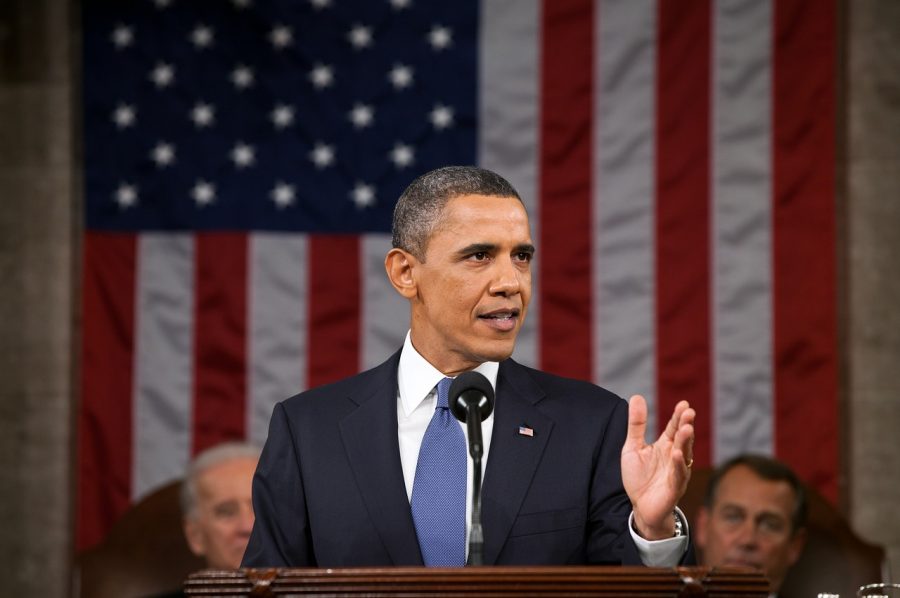The case for the Trans-Pacific Partnership
The Trans-Pacific Partnership (TPP) is a trade agreement among twelve Pacific nations that, if ratified, would promote economic growth, support the creation of jobs, raise living standards and lower poverty. Both major-party candidates, including President-elect Donald Trump, railed against it in their 2016 campaigns.
According to both the World Bank and the Peterson Institute, the TPP will raise U.S. wages by 2030. The more than 35-year-old trend of wage stagnation appears to be continuing, and trade deals have historically increased wages. According to a study by the Federal Reserve, NAFTA raised wages in all three countries (the U.S., Canada and Mexico) that it affected. In addition, the TPP will increase annual U.S. exports by $357 billion by 2030.
The TPP will also add 796,000 export jobs (jobs directly supported by exports) by 2030 according to Peterson. This would have incredibly positive effects, especially as job creation in the U.S. remains low. The study also notes that export jobs pay up to 18 percent more than average jobs. In addition, projected annual income gains from this trade deal range from $57 billion to $131 billion by 2032. The TPP would also advance vital security interests as it allows the U.S. to deal more effectively with China’s influence over the region.
Regardless, the TPP has been mercilessly antagonized. Hillary Clinton, who once called the TPP “the gold standard in trade agreements” changed tone in her presidential campaign. “I will stop any trade deal that kills jobs or holds down wages — including the Trans-Pacific Partnership,” she said at an August campaign stop in Ohio. As mentioned previously, jobs will be created and wages will increase as a direct result of the TPP. Saying that wages will be held down is absolutely ridiculous. Donald Trump, meanwhile, has complained at a Republican presidential debate that the TPP “was designed for China to come in, as they always do, through the back door and totally take advantage of everyone.” As China leads the world in merchandise exports, this seems on the surface like a fair argument.
There is just one problem with Trump’s statement: China is not included in the trade deal. In addition, according to Politifact the deal would mean countries that compete with China would have zero tariffs on goods coming into the United States.
Another major complaint is that the TPP will lead to an increase in harmful environmental pollutants, as manufacturing operations move to countries with relaxed environmental standards, a common complaint with trade agreements. However, the TPP includes more comprehensive and enforceable environmental rules than previous trade agreements. In fact, it is the first trade agreement to address sustainable fishing practices to reduce overfishing. The World Wildlife Fund stated that “no major trade agreement before this one has gone so far to address growing pressures on natural resources like overexploited fish, wildlife and forests.” It is also supported by The Nature Conservancy, World Animal Protection, and the Wildlife Conservation Society.
Detractors of the TPP like to point out it is imperfect. It absolutely is, as all trade deals are. “When I studied the TPP really closely, it became clear that the primary beneficiaries would probably be business owners and wealthy people,” history teacher Daniel Moses said. “The vast majority of the wealth that would be generated through the trade partnership would probably go to wealthier people.”
There is no good way to know if this is true or not. However, the more we sell abroad, the more higher-paying jobs we support at home. Also, the TPP is an incredibly progressive trade deal. It includes a ban on child labor, a minimum wage, a ban on workplace discrimination, requires anti-corruption measures and combats illegal logging. No trade deal is perfect, but the TPP is a major step forward.
The Trans-Pacific Partnership would allow America to compete with China in trade like never before. Mireya Solís, a senior fellow at the Brookings Center for East Asia Policy Studies, is very clear about the adverse effects of failing to ratify the TPP. “The countries in the region want America to lead, but if the U.S. is so politically tied up in knots to not follow through on its promises then countries will have to turn elsewhere. The U.S. role in the world will never be the same.”













